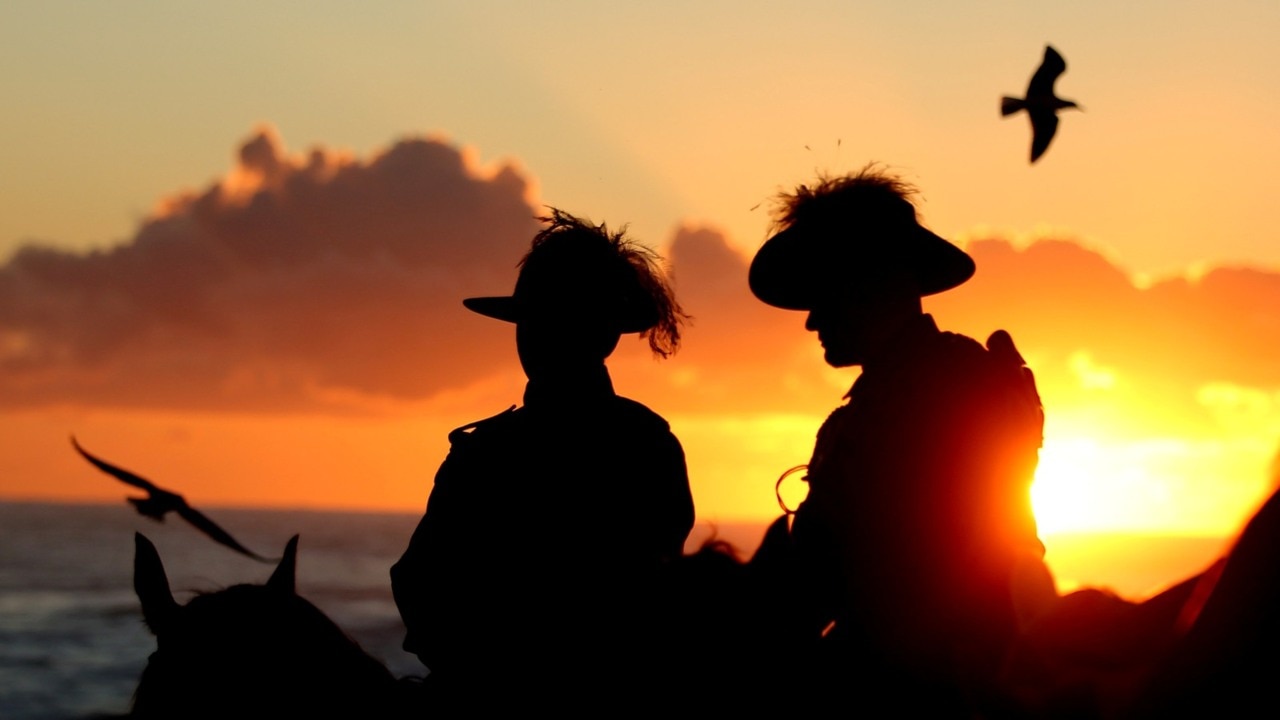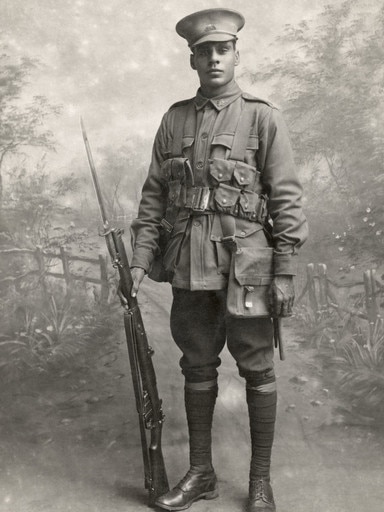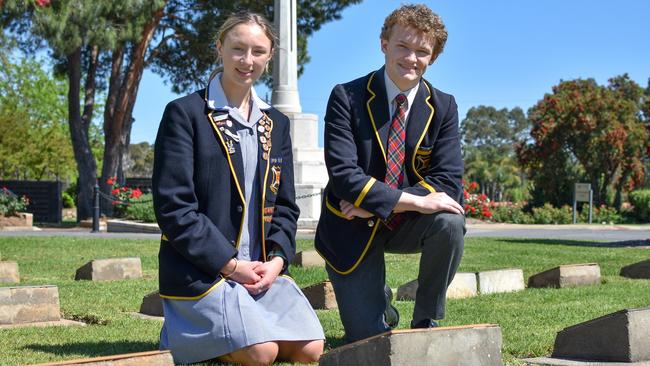Scotch College to honour indigenous hero on Remembrance Day
SCOTCH College students will this weekend honour Fred Prentice – one of the first indigenous Australians to enlist for World War I and a recipient of the Military Medal for outstanding bravery.

- One of the last Rats of Tobruk Bill Corey WWII veteran dies
- Incredible logistics of sending letters to soldiers in World War I
- Digger’s fascinating, tragic letters from the grave
FRED Prentice was one of the best-known World War I indigenous Diggers, winning the Military Medal for his gallantry.
Due to army protocol of ethnicity not being stated on registration forms, the exact number of Aboriginal and Torres Strait Islander soldiers who served in the Great War is not recorded, but everyone knew Fred’s proud heritage.
He was born at Powell Creek, just off the Stuart Highway in the Northern Territory in 1894, the son of Alfred Leslie Prentice, the settlement’s justice of the peace.
Soon after, he was adopted by a stationhand, Walter James “Dan” Kell, and his wife, Isabel, a nurse at Palmerston Hospital.
When the family moved to Adelaide, where Dan became senior telegraphist at Unley, Fred, then 11, came too.
He was schooled at Kyre College, the predecessor of Scotch College at Torrens Park, and excelled in athletics and music .

He was working as a stationhand out of Wallaroo before enlisting with the 12th Battalion on May 7, 1915.
It was during the infamous bloody fighting at Mouquet Farm in Pozières, France, as part of the Battle of the Somme, in September 1916, that Fred’s skill and courage for transporting machine guns and ammunition through an enemy barrage, running time after time across broken ground, was recognised
On receiving his medal, Fred sent it back to Australia for safekeeping with his sister, also an adopted part-Aborigine, but it was lost when the SS Mongolia was sunk by enemy forces.
No less a figure than General William Birdwood, commander of the Anzacs during the Gallipoli campaign in 1915, while on the Adelaide leg of his acclaimed 1920 Australian tour, presented Fred with a new medal.
Given his links to Kyre College, Scotch College has chosen to honour Fred at a special Remembrance Day service Centennial Park this Sunday.

Year 11 students Lucie Spurling, of Clarence Gardens, and Hugh Whittle, of Goodwood, will lead the respects for those who have served.
Scotch College was founded as a memorial to the “Sons of Scotland” who served in the Great War.
“It’s important that young people continue to learn about Australia’s war history so that we continue to remember and commemorate the bravery of the many servicemen and women who fought for us,” Hugh says.
Returning to Australia, Fred, like many indigenous service personnel, found the respect he gained in the military was not reciprocated in the post-war society.
Racism and exclusion continued, and the contribution of those indigenous Australians who served in war was forgotten, their rights revoked.
Fred lived out his last days back in the Northern Territory. He died of a heart attack in 1957, aged 63, while sitting alone around a campfire and is buried with an unmarked gravestone in Katherine.
